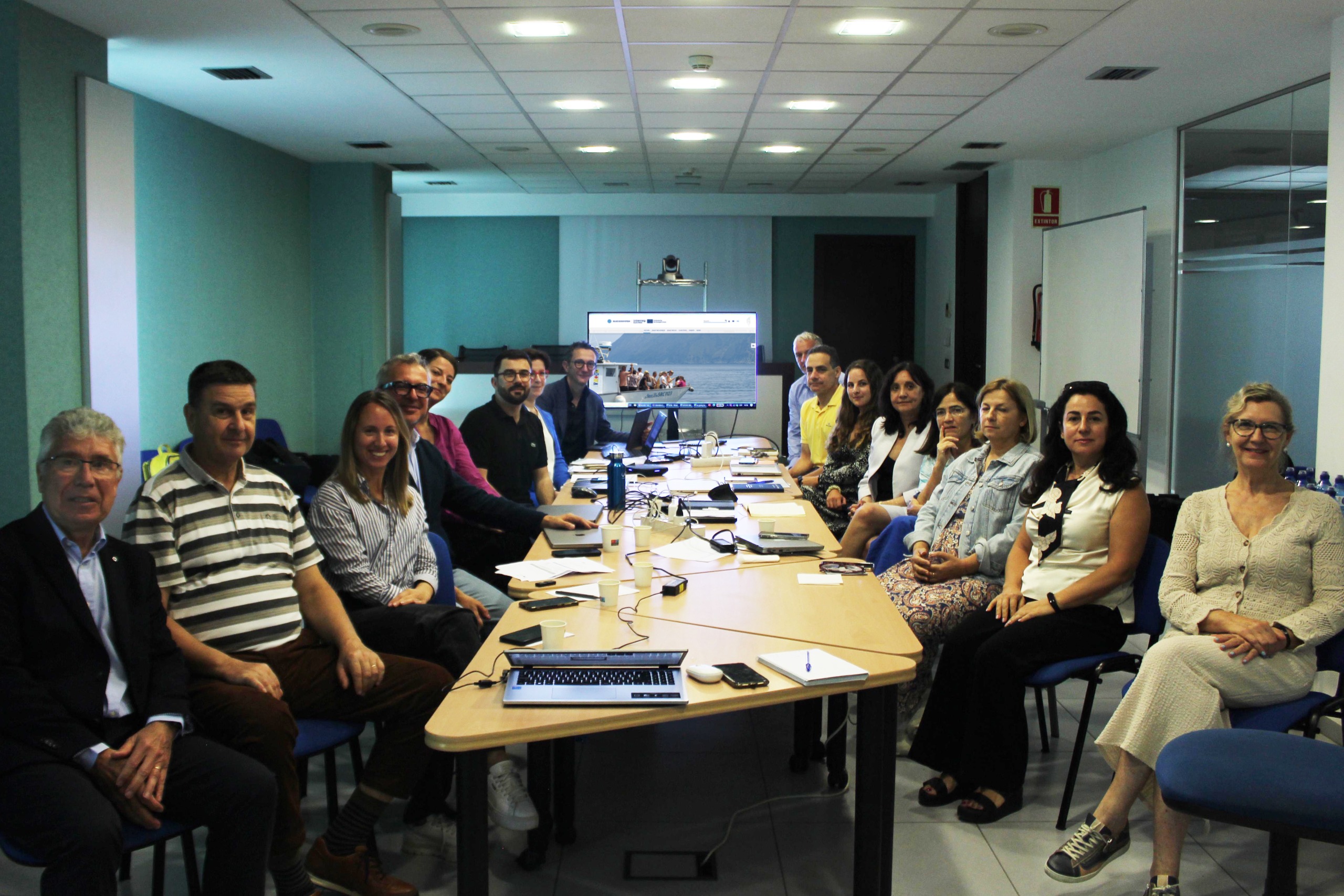- MED Innovation Camp
Last 28 and 29 May, the BLUE ECOYSTEM project (Thematic Project within the mission Innovative Sustainable Economy) participated in the second edition of the MED Innovation Camp in Barcelona.
S3 experts, policymakers, and Interreg Euro-MED projects partners were engaged over the opportunities offered by innovative ways of considering transformative innovation policies in the Mediterranean as well as seeking further inputs on the development of the “Transformative Innovation Policy Labs (TIPL)”, one of the core activities to be offered by the Dialogue4Innovation project in the coming years. Governments, through S3, can accelerate systemic transitions towards innovative policies, and can be boosted by cooperation projects.

For the rest of the meeting, different workshops were organized, gathering different stakeholders in working groups (e.g., policymakers, project partners) and making a joint reflection on the projects’ conceptual framework via a case-study (Depopulation of Mediterranean Rural Areas) and the collection of inputs for improving the TIPL methodology.
- BLUE ECOSYSTEM in-person kick-off meeting
The following day, 30 May, the BLUE ECOSYSTEM partnership met at the premises of the Cluster Maritimo de las Islas Baleares to organise the first in-person meeting.
After a brief introduction by the Joint Secretariat and the Lead Partner on administrative aspects and relevant information for the partners, the CPMR made a short presentation of the “Stakeholder engagement dissemination, advocacy & communication strategy”, which ensures the proper involvement of the quintuple helix stakeholders in the project activities and the dissemination and promotion of the project results.
However, the focus of the meeting was the “Blue Transformation challenges at MED level and priority matrix”. HCMR shared the guidelines for the correct identification of regional blue economy challenges, which are based on existing policy documents and strategies as well as regional action plans.
In this sense, it was highlighted that it is important to confirm if the identified challenge is shared with the stakeholders. Depending on the challenge, there will be one or more solutions, but it is necessary to take into account the externalities of each of them, which ones will be prioritised and what will be missed, as well as which the incompatibilities.

Each regional partner briefly presented three key pieces of information.
- The current situation at regional level (the weight of the blue economy in the region’s economy and the main sectors)
- The challenges identified
- The previous experience in co-creation and co-design methodologies
In general, the involved regions in the project start from different realities, but with common challenges:
Emilia Romagna Region for instance faces problem with the blue crab, which is an invasive species that devastated livestock production. The main challenges of Zadar County are related to fisheries and aquaculture, but above all to tourism, also the main challenge of Balearic Islands, as it is the sector that has by far the most weight in the regional blue economy.
In the Région Sud and Occitanie (Pôle Mer), the blue economy is diversified, with naval and maritime security, transport and logistics, tourism, aquaculture and fisheries, biotechnologies and renewable marine energies. Alentejo depend on the central government (they have a national strategy on blue economy), but face several challenges related with renewable energy, blue bio economy, sustainable tourism, sustainable fishing and aquaculture and biodiversity conservation. The latter also is highlighted by Attica, which has many protected areas and compatibility with the blue economy sectors needs to be analysed.
Albania’s challenges are based on overexploitation of marine resources, pollution from coastal tourism and waste management systems improvement. The presentation by Cyprus stands out, as it analysed the challenges from different perspectives (environment, policies, technology, skills, business, financial, behavioural, citizen engagement…). It should be replicated by the other regional partners to ensure the involvement of the quintuple helix throughout the project.
The next partnership meeting will take place in October in Portugal to discuss about the progress of the activities. Stay tuned to our social media for all the news 😊.
For further information, please contact jordi.juarez@crpm.org


